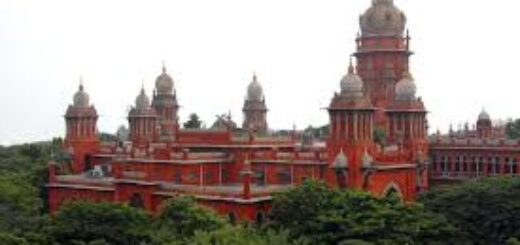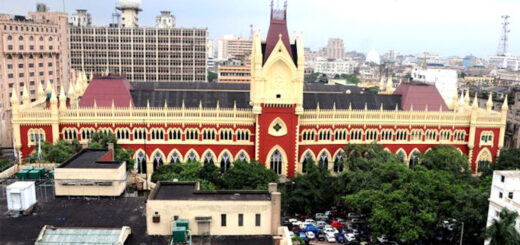The Supreme Court outlines the rules on prosecution under Section 195 of the Criminal Procedure Code, stating that a bar to taking notice does not apply when the High Court, as a higher authority, orders a complaint to be filed.

The Supreme Court established guidelines for prosecutions under Section 195 of the Cr.P.C. It explained that the restriction in Section 195(1)(b)(ii) does not apply if a document was forged before it was presented in court or if a judicial order is involved in the case. The Court made these remarks while reviving a long-standing case of evidence tampering against former Kerala Minister Antony Raju, stating that the High Court mistakenly ruled that the case was barred under Section 195(1)(b) of the Cr.P.C. The Division Bench, consisting of Justice C.T. Ravikumar and Justice Sanjay Karol, noted that the current proceedings stemmed from a Kerala High Court judgment on February 5, 1991, which acquitted Andrew Salvatore and called for a thorough investigation into the matter. The High Court incorrectly claimed there was no judicial order related to the current proceedings.
AOR Deepak Prakash represented the Appellant, while Senior Advocate P.V. Dinesh represented the Respondent. This case began in 1990 when an FIR was filed under Section 20(b)(ii) of the Narcotics Drugs and Psychotropic Substances Act. An Australian national was caught with charas hidden in his underwear. The Sessions Court found him guilty, but it was later revealed that the underwear did not fit him. It was discovered that the Court clerk and Advocate Antony Raju had conspired to hide evidence. In 2022, both accused filed petitions to quash the charges, which were granted by the contested order.
One individual, M.R. Ajayan, who is the editor of “Green Kerala News,” filed two petitions with the Supreme Court. He was unhappy with the High Court’s decision to dismiss serious allegations in his complaint. Regarding Ajayan’s right to bring the case, the Bench stated, “…we believe that the appellant’s standing in SLP(Crl.)No.4887 of 2024 does not prevent this Court from hearing the matter. The case, which the High Court dismissed, involves serious claims of interference with judicial processes that threaten the core of justice administration.” Another point discussed was whether the High Court correctly determined that the proceedings were barred under Section 195(1)(b) of the Cr.P.C. This section limits the ability of individuals and Magistrates to file complaints for certain offenses. The Bench disagreed with the High Court, noting that the criminal proceedings did not stem from a private complaint. The High Court had argued that since the article was released from court custody, it was under ‘Custodiam Legis,’ thus invoking the bar under Section 195(1)(b).
The Supreme Court emphasized key principles regarding prosecutions under Section 195 Cr.P.C., as clarified in several cases, including Sachida Nand Singh v. State of Bihar, M.S. Ahlawat v. State of Haryana, Iqbal Singh Marwah v. Meenakshi Marwah, Perumal v. Janaki, and CBI v. M. Sivamani:
- The rules in Section 195 of the Cr.P.C. are mandatory.
- This Section limits the general rights of individuals and Magistrates to file complaints for the listed offences.
- It covers three types of offences: (1) contempt of public servants, (2) offences against public justice, and (3) issues related to evidence documents. Overall, the Section requires that the offence must directly relate to a public servant’s duties or affect court proceedings and justice.
- This provision prevents taking action on certain offences unless a complaint is made by the Court.
- For the restriction in Section 195(1)(b) to apply, the offence must occur while the document is under the Court’s control.
- The restriction in Section 195(1)(b)(ii) does not apply if the forgery happened before the document was presented in Court. It only applies if the offence occurs after the document is submitted as evidence.
- High Courts can use the powers in Section 195 when a request is made or on their own initiative if it serves justice.
- If a High Court, as a higher authority, orders a complaint for an offence under Section 195(1)(b)(i), the restriction on taking action does not apply.
The Bench stated, “In this unusual situation, the accused reportedly got the item in question from judicial custody without a clear release order. They then altered it or helped to alter it and replaced it with the original.” The Bench found that the High Court’s decision to dismiss the case was not justified, so they overturned that order and reinstated the order for taking cognizance, along with all related proceedings, in the files of Judicial First Class Magistrate-I.
Cause Title: M.R. Ajayan v. State Of Kerala & Ors [Neutral Citation: 2024 INSC 881]









